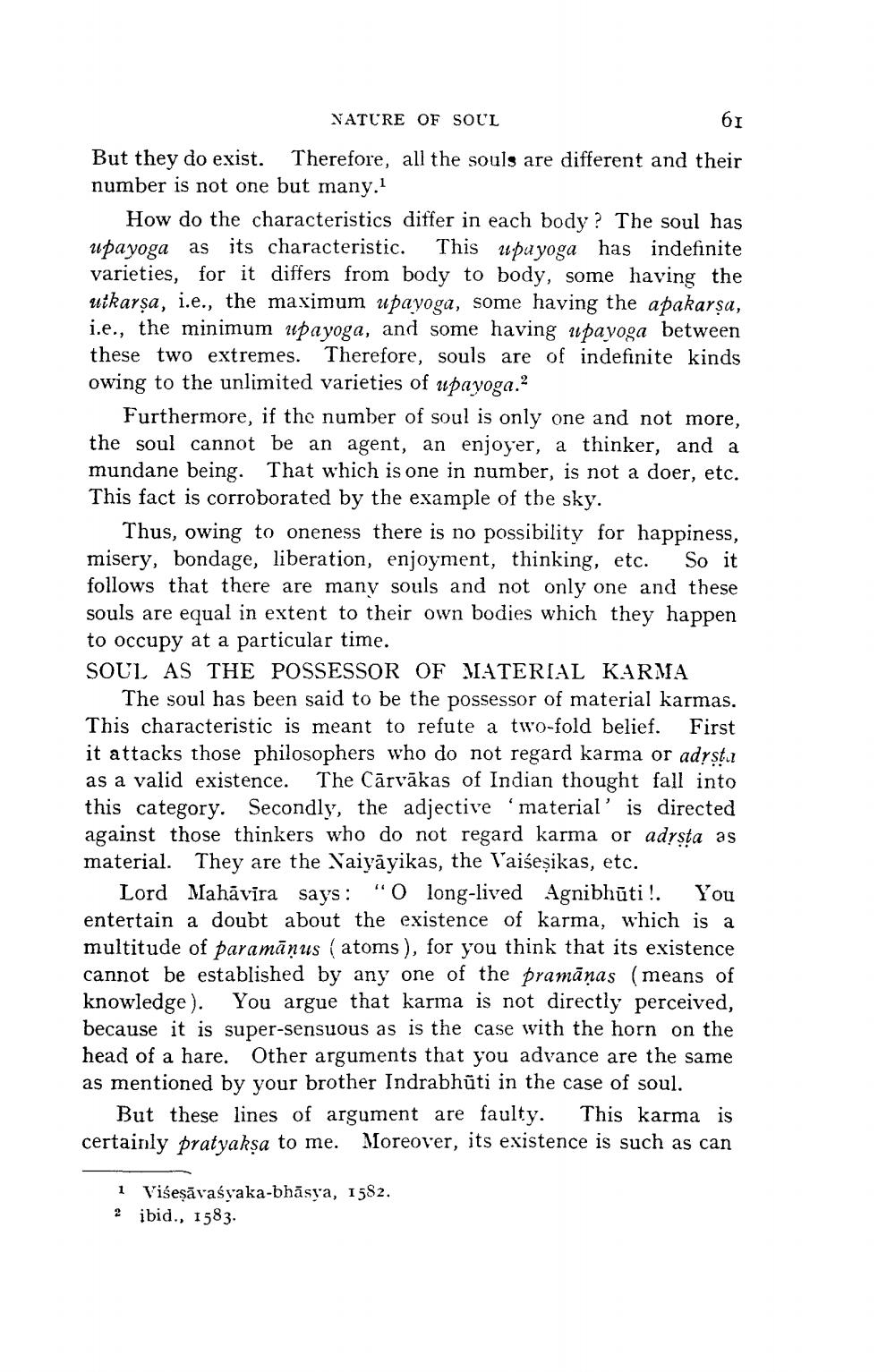________________
NATURE OF SOU'L
бI
But they do exist. Therefore, all the souls are different and their number is not one but many.1
How do the characteristics differ in each body? The soul has upayoga as its characteristic. This wpa yoga has indefinite varieties, for it differs from body to body, some having the uikarsa, i.e., the maximum upayoga, some having the apakarsa, i.e., the minimum upayoga, and some having upavoga between these two extremes. Therefore, souls are of indefinite kinds owing to the unlimited varieties of upayoga.
Furthermore, if the number of soul is only one and not more, the soul cannot be an agent, an enjoyer, a thinker, and a mundane being. That which is one in number, is not a doer, etc. This fact is corroborated by the example of the sky.
Thus, owing to oneness there is no possibility for happiness, misery, bondage, liberation, enjoyment, thinking, etc. So it follows that there are many souls and not only one and these souls are equal in extent to their own bodies which they happen to occupy at a particular time. SOUL AS THE POSSESSOR OF MATERIAL KARMA
The soul has been said to be the possessor of material karmas. This characteristic is meant to refute a two-fold belief. First it attacks those philosophers who do not regard karma or adrstu as a valid existence. The Cārvākas of Indian thought fall into this category. Secondly, the adjective material' is directed against those thinkers who do not regard karma or adysta as material. They are the Naiyāyikas, the Vaišeșikas, etc.
Lord Mahāvīra says: “O long-lived Agnibhūti!. You entertain a doubt about the existence of kasma, which is a multitude of paramānus (atoms), for you think that its existence cannot be established by any one of the pramānas (means of knowledge). You argue that karma is not directly perceived, because it is super-sensuous as is the case with the horn on the head of a hare. Other arguments that you advance are the same as mentioned by your brother Indrabhūti in the case of soul.
But these lines of argument are faulty. This karma is certainly pratyaksa to me. Moreover, its existence is such as can
1 Višeşāvasvaka-bhāsya, 15$2. 2 ibid., 1583.




